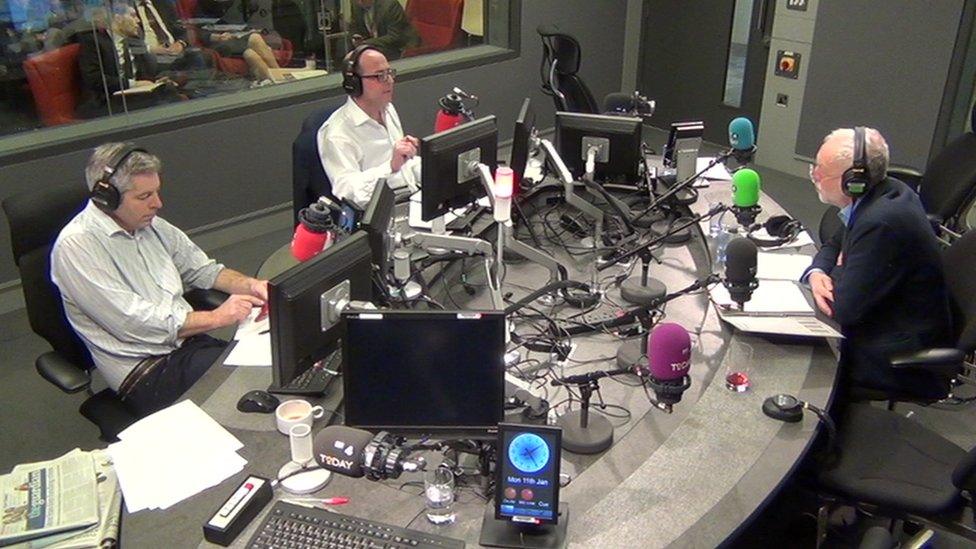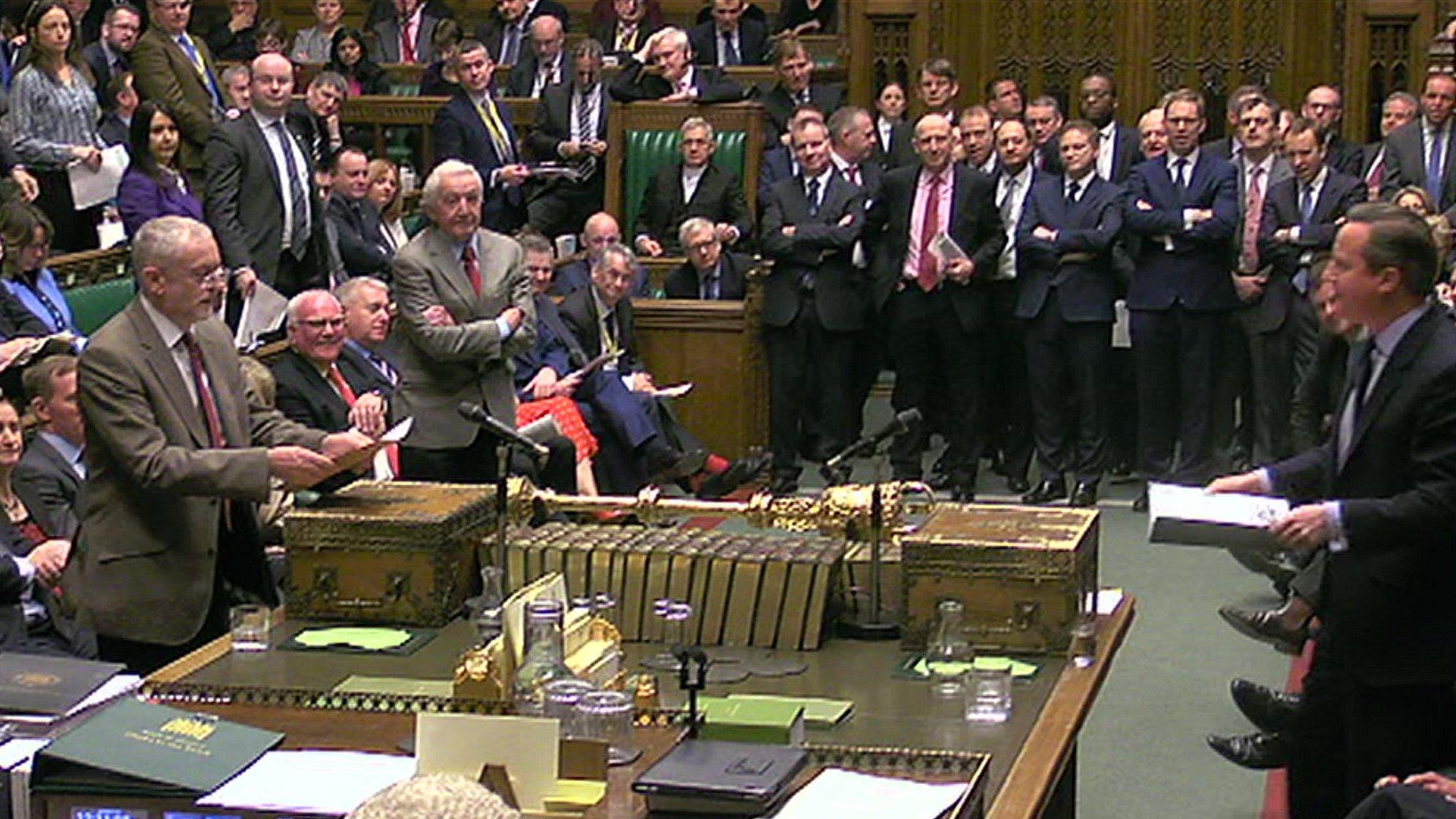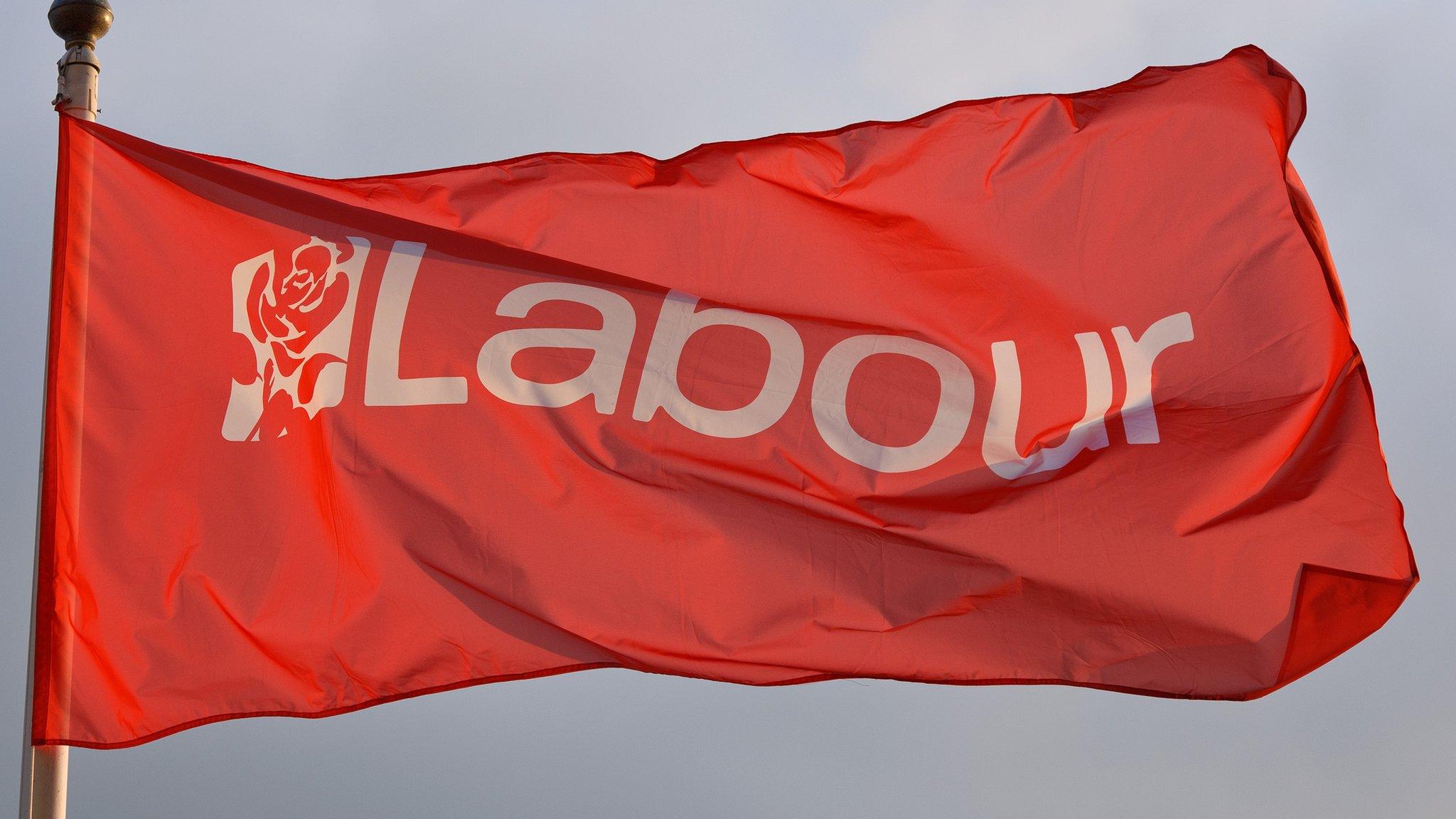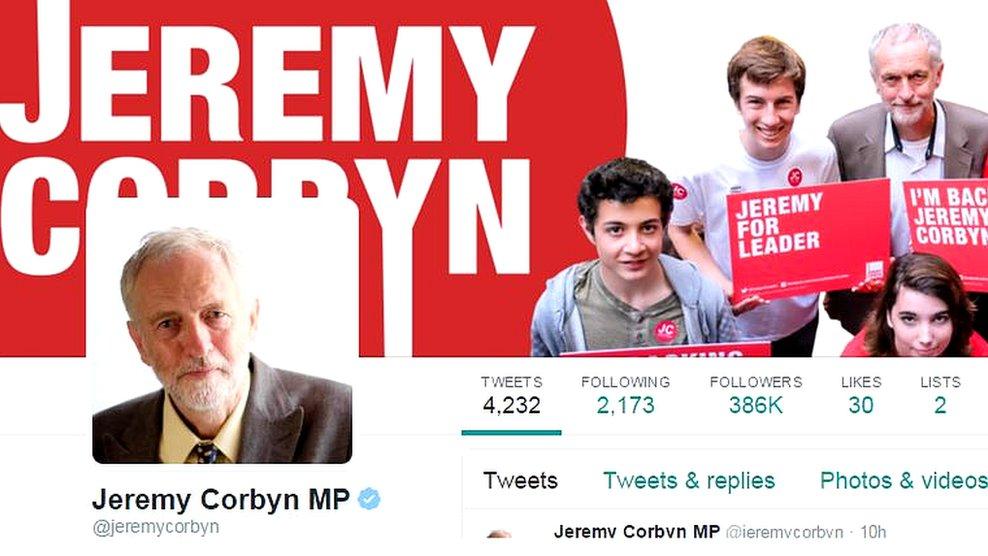Jeremy Corbyn: Labour 'moving on' from reshuffle
- Published

Labour remains "strong and determined" despite the internal turmoil of recent weeks, Jeremy Corbyn has said.
The party leader added he was "happy" with his shadow cabinet after last week's reshuffle, which had brought greater "diversity" to his front bench.
One of those sacked, Pat McFadden, had "distorted" his views on terrorism and the Paris attacks, Mr Corbyn added.
He also said party members would have a say on whether to back renewal of the UK's nuclear weapons programme.
Follow all the latest updates on the Politics Live Page
Parliament is expected to vote later this year on whether to give the go-ahead for a new generation of submarines to carry the Trident missiles.
Mr Corbyn - who opposes Trident but faces opposition within Labour to changing the party's pro-Trident policy - told BBC Radio 4's Today programme a serious debate was needed on the purpose of nuclear weapons in the 21st Century and what role "Britain could play in bringing about a nuclear-free world".
Asked whether he would have to go if Labour's policy to renew Trident did not, he replied: "You are creating a crisis that does not exist.
Labour had an existing policy, Mr Corbyn said.
But he also had "a mandate I received as leader".
Big say
"Renewing Trident fundamentally goes against the spirit of the non-proliferation treaty," he said.
But the policy would be reviewed by the shadow cabinet and Labour's National Executive.
And that review would be "comprehensive" and would consider the "protection of skills and jobs".
"I want the members to have a big say," Mr Corbyn added.
But the National Executive would decide whether that would be through a vote at Labour's annual conference or a ballot of all members.
"Let's get the debate out there first," Mr Corbyn said.
He did not say whether he would attend an anti-Trident rally next month, adding: "Let's see what happens."
Moving on
In his first major broadcast interview since last week's reshuffle, Mr Corbyn defended his changes, which saw pro-Trident former defence spokesmen Maria Eagle moved to culture and two of his critics - Mr McFadden and Michael Dugher - sacked.
"A reshuffle is never easy," he said.
"And there is never a good time to do it.
"We have a shadow cabinet that is strong.
"We have a team which is strong.
"We have widened the shadow cabinet to represent the diversity of the country and the Parliamentary Labour Party.
"I am happy with it.
"We are moving on."
Random acts
Mr Corbyn had been criticised by some in his party for not being more emphatic in his condemnation of terrorists in the wake of the Paris attacks and for appearing to link the atrocities to the actions of the West.
But the Labour leader said his position had been misconstrued.
"I am absolutely not in favour of terrorism of any sort," he said.
"It is absolutely appalling and disgraceful that civilian life should be taken by random acts of terrorism as happened in Paris."
Direct threat
Mr Corbyn said the French government had been in no way responsible for the attacks, but there needed to be a greater understanding about how so-called Islamic State had come into being and who was funding and arming the militant group.
Asked whether as prime minister, he would authorise a drone strike to kill an alleged terrorist if it was believed they posed a direct threat to Britain, he said: "I would want to see the evidence of it, obviously, what difference it would make by doing that, what the chances are of capturing somebody - I suspect very, very low in those circumstances - so action could be taken."
Documents emerged on Monday suggesting Labour fears its annual income could fall by £6m as a result of legal changes to the way it receives funds from the trade unions.
The Trade Union Bill, being debated in the Lords on Monday, would require Labour-affiliated union members to "opt in" to paying a levy to the party.
And Labour believes three million fewer members of the biggest unions would agree, impacting on its structure.
But Mr Corbyn said the party was in good shape in the country at large and had proved successful in fighting the government over cuts to welfare, policing and local government.
"What I am trying to do is represent a very broad swathe of people's opinions around Britain who felt very put off by the politics of the past and the similarities of the economic strategies of the main parties," he said.
"This is a party which is very determined and very strong, and don't underestimate the huge activity of the hundreds of thousands of people who have joined the Labour Party and are active in communities."
- Published11 January 2016

- Published11 January 2016

- Published10 January 2016
